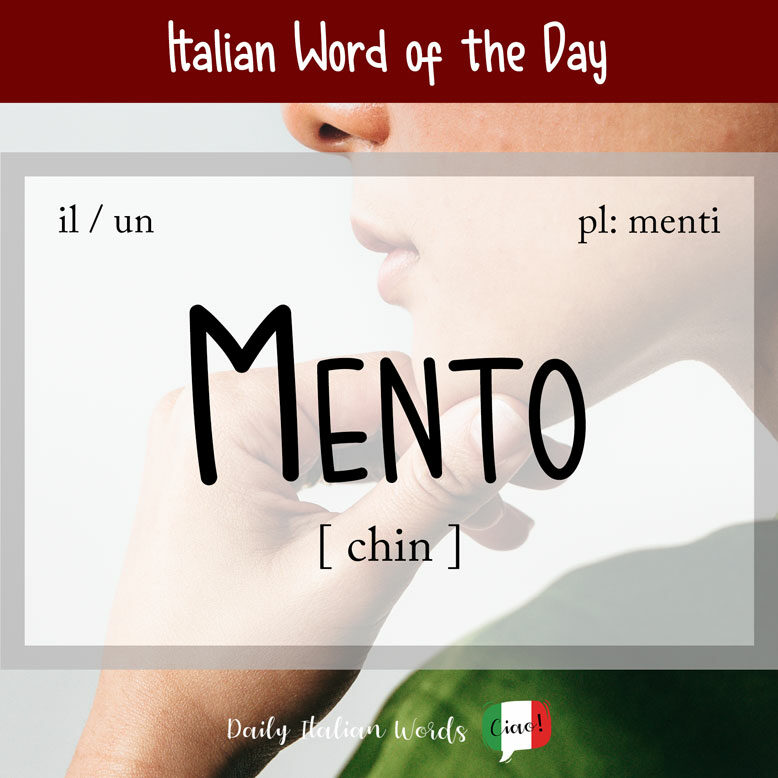The word for chin in Italian is mento. It derives from the Latin mentum of the same meaning.

Being a masculine noun, mento takes the following definite and indefinite articles:
il mento
the chin
un mento
a chin
i menti
the chins
dei menti
(some) chins
Mi sono svegliato con un brufolo enorme sul mento!
I woke up with a huge pimple on my chin!

There are various ways in which you can describe the appearance of a person’s chin. Those who are overweight or elderly may develop un doppio mento (double chin), while many people are born with una fossetta sul mento (a cleft chin).
Someone with a receding or weak chin is said to have a mento sfuggente or mento retruso in Italian. Although it is determined by your genetics, it can be corrected via surgery, which involves cutting and reshaping the lower jaw bone.
The term mento prominente, on the other hand, describes a chin that protrudes more than it should.
To conclude, we have a few expressions with the word mento:
- stare col mento fra le mani = to collect one’s thoughts, to concentrate (lit. to stay with the chin in one’s hands)
- levare alto il mento = to look up / to be curious (lit. to raise the chin high)
- l’onor del mento = the beard, it’s a baroque metaphor that is used today in a joking way (lit. the honour of the chin)
Heather Broster is a graduate with honours in linguistics from the University of Western Ontario. She is an aspiring polyglot, proficient in English and Italian, as well as Japanese, Welsh, and French to varying degrees of fluency. Originally from Toronto, Heather has resided in various countries, notably Italy for a period of six years. Her primary focus lies in the fields of language acquisition, education, and bilingual instruction.


